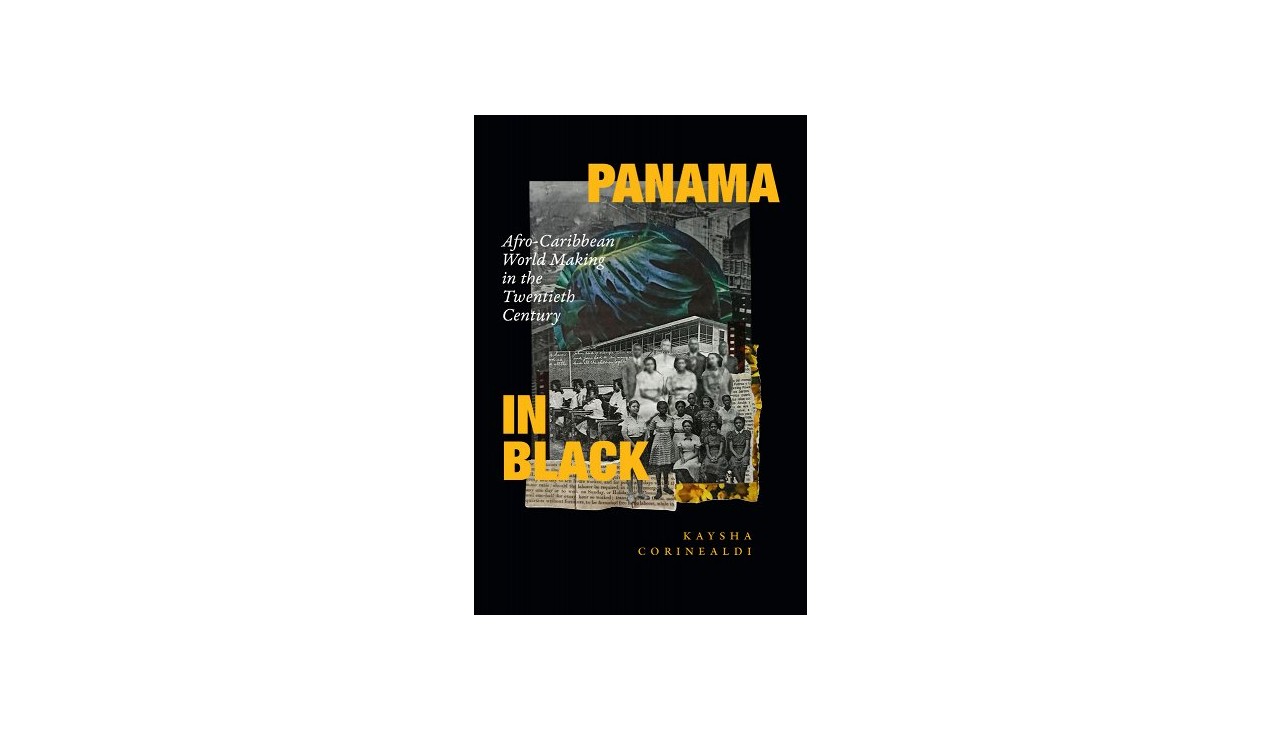
How Afro-Caribbean Panamanians used activism to navigate anti-Blackness, xenophobia, and white supremacy
In ‘Panama in Black,' professor Kaysha Corinealdi offers a new mode of understanding activism, community, and diaspora formation
In Panama, Afro-Caribbean Panamanians created a diasporic worldview of the Caribbean that uplifted the potential of Black innovation and challenged dominant notions of citizenship as well as the U.S. empire.
In her new book, Panama in Black, History professor Kaysha Corinealdi traces the multigenerational activism of Afro-Caribbean Panamanians as they forged diasporic communities in Panama and the United States throughout the 20th century.
Drawing on a rich array of sources including speeches, yearbooks, photographs, government reports, radio broadcasts, newspaper editorials, and oral histories, Corinealdi presents the Panamanian isthmus as a crucial site in the making of an Afro-diasporic world that linked cities and towns like Colón, Kingston, Panamá City, Brooklyn, Bridgetown, and La Boca.
RELATED CONTENT
One example the author mentions in her book is the case of Las Servidoras, a Brooklyn-based scholarship-granting organization created by Afro-Caribbean Panamanian women who migrated to New York starting in the late 1940s.
“Through its organizational and memory-keeping work, Las Servidoras embarked on a project of defining Panama that countered the nation-state-specific, homogenously linguistic, and supposedly raceless articulations of ser panameño,” she writes in her book, as quoted in Public Books. “The women and work of Las Servidoras, I argue, served as reminders that claiming Panama, especially when understood as a diasporic process, was about not just geography but the idea of a continuous becoming and a purposeful claiming.”
The author also maps this innovation led by Afro-Caribbean Panamanians by examining the longest-running Black newspaper in Central America, the rise of civic associations created to counter policies that stripped Afro-Caribbean Panamanians of citizenship, the creation of scholarship-granting organizations that supported the education of Black students, and the emergence of national conferences and organizations that linked anti-imperialism and Black liberation.
By showing how Afro-Caribbean Panamanians used these methods to navigate anti-Blackness, xenophobia, and white supremacy, Corinealdi offers a new mode of understanding activism, community, and diaspora formation.
Corinealdi is currently assistant professor of History at Emerson College, Boston, MA. She is an interdisciplinary historian of modern empires, migration, gender, and activism in the Americas. Corinealdi has presented her work nationally and internationally on themes such as photographing existence in the Americas, Afro-Latinx educators in New York City, women undoing empire, anti-Blackness in the Americas, and anti-communism in 20th century Panama and the United States. Her research can also be found in the Caribbean Review of Gender Studies, the International Journal of Africana Studies, and the Global South.












LEAVE A COMMENT: